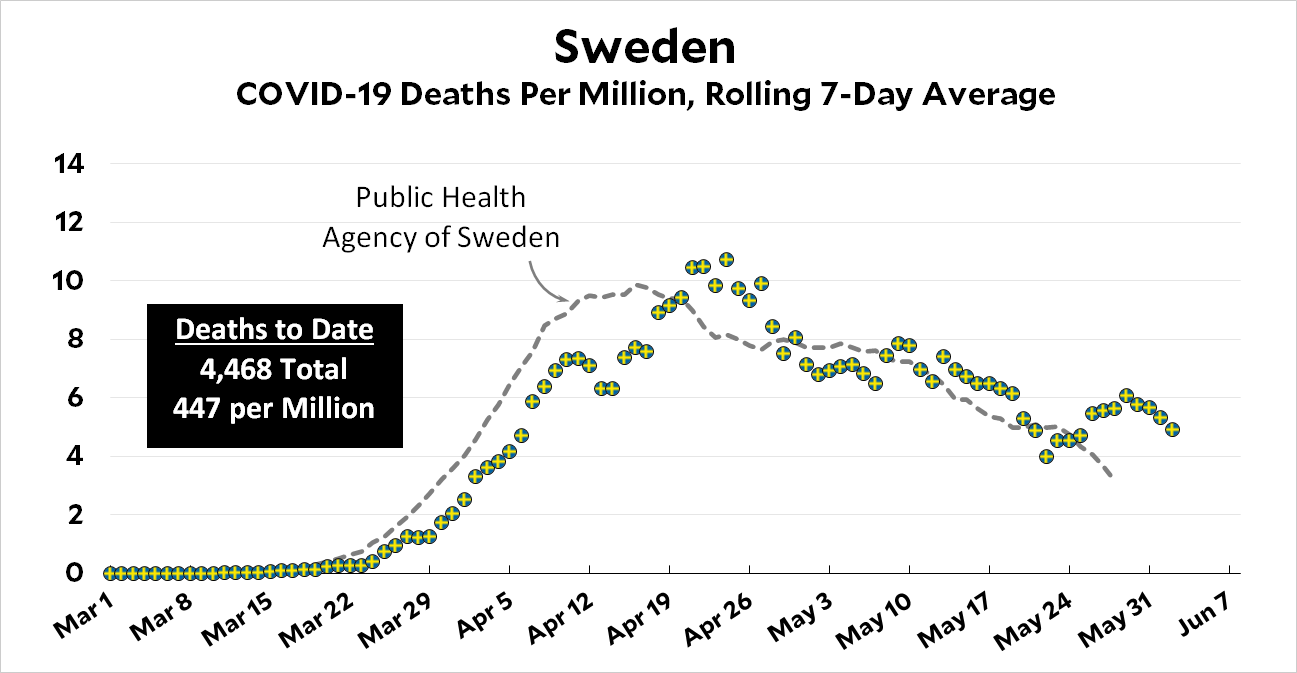Sweden’s top epidemiologist has admitted his strategy to fight Covid-19 resulted in too many deaths, after persuading his country to avoid a strict lockdown. “If we were to encounter the same illness with the same knowledge that we have today, I think our response would land somewhere in between what Sweden did and what the rest of the world has done,” Anders Tegnell said in an interview with Swedish Radio.
First off, isn’t this kind of amazing? A powerful government official admitting he was wrong? We sure don’t see that in America anymore.
But there’s a second thing: I wonder if Tegnell is admitting defeat too early? It’s true that Sweden’s death rate has been fairly high:

(The dots are the raw number of deaths reported each day, regardless of when the death actually took place. The gray line shows deaths by the actual date they happened.)
The idea behind Tegnell’s approach was that it was sustainable. That is, it could be maintained for an entire year or so. Conversely, other countries with stricter lockdowns might show more impressive declines, but when they loosened up they’d simply face another big increase in COVID-19 deaths. Then they’d lock down again, then loosen, then lock down, rinse and repeat.
So which approach will, in the end, produce the lower death rate? It all depends on what happens when lockdown countries ease up, and that’s something we don’t know yet. By the end of the year things might look very different than they do today.
UPDATE: In a follow-up interview, Tegnell says his remarks were “spun pretty hard.” For one thing, his “too many deaths” comment mostly referred to deaths in nursing homes, which he’s talked about before. As for Sweden’s general strategy, he says this:
Are there parts that we should have closed?
It’s not obvious from what we know so far. I don’t think it is. There are no activities that we can point to as extremely vulnerable. There aren’t.
It’s obvious that everything hasn’t gone as well as it could have. What would have made the situation better?
It is obvious that it could have been better. And that comes down to social distancing. If you close society and don’t let people out for six, eight, ten weeks you will have a more obvious social distancing than otherwise. But I think the fundamental strategy has worked well. I can’t see how we could have acted in a totally different way. Of course there are details which you can think about, and we do that continuously. We have also made small changes all the time, and will certainly continue to do so.
So it sounds like he hasn’t really backed off his strategy at all. He just thinks they could have done a better job with nursing homes.

















